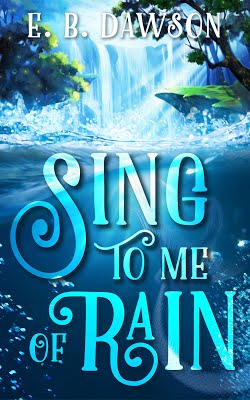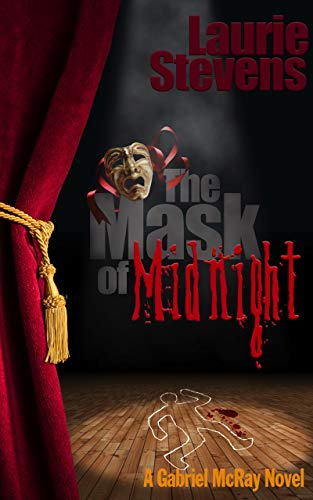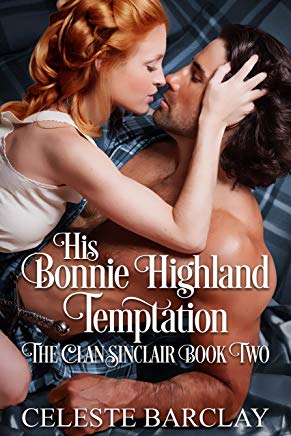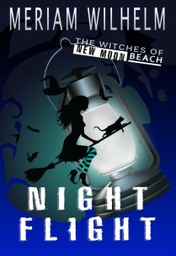RWA National Conference–A Fun Event!
July 6, 2011 by Linda O. Johnston in category Pets, Romance & Lots of Suspense by Linda O. Johnston, Writing Conferences tagged as Harlequin Nocturne, Linda O. Johnston, Pet Rescuer MysteriesI was one of the 2,000+ attendees at the Romance Writers of America National Conference last week. It was held at the Marriott Marquis Hotel in New York City, and the theme was Bright Lights, Big Stories. That was the saying that appeared on the tote bags we were handed upon registration–filled with the conference’s program, a thumb drive with handouts, a fill-it-in-yourself conference calendar, and lots of books!
I understand that this month’s program at OCC will be a recap of conference highlights. Unfortunately, I’m unlikely to be there, although I’m not sure how much actual information I’d be able to contribute anyway. I spent most of my time networking more than attending workshops or other events. But there’s a lot of value in that, and I’m delighted that I was there. I saw lots of writers I already know and met many more. I spoke with people who buy and promote books professionally and by word of mouth. I went to lunch with industry professionals who affect my career, and attended parties including the ones thrown by Berkley and Harlequin.
One very helpful event was Harlequin’s Digital Day. I obviously blog, and I also belong to Facebook, but I’ve been avoiding Twitter. I took lessons on how to sign up, though. I’ll probably give in and join it one of these days.
Then there was the librarians’ and booksellers’ event, where I networked with some of those pros and distributed handouts for both kinds of my books–my Alpha Force miniseries about covert military shapeshifters, for Harlequin Nocturne, as well as my Pet Rescue Mysteries for Berkley Prime Crime. The Literacy Signing was huge, and I also sold both genres of my books to benefit literacy.
There is a lot going on in our industry, as you undoubtedly know. Smaller publishers and e-publishing are on the rise. Traditional publishers recognize that and seem to be adapting, or at least trying to.
 What will the publishing industry be like in one year? Five? No one really knows, although a lot of opinions are being expressed.
What will the publishing industry be like in one year? Five? No one really knows, although a lot of opinions are being expressed.
Meantime, I’ll keep on writing and try to make sure my career continues to adapt, too! Attending conferences like this one should give me some insights about how to keep it fresh.
As you probably know, the RWA National Conference will be in Anaheim next year–much easier for those of us who live in Southern California to get to. I’ll be there. Will you?
Linda’s Alpha Force miniseries from Harlequin Nocturne continues with GUARDIAN WOLF, an August 2011 release. The Pet Rescue Mysteries spinoff from her Kendra Ballantyne Pet-Sitter mystery series will continue in October 2011 with THE MORE THE TERRIER. And of course, BEAGLEMANIA is still available. Visit Linda at Linda O Johnston
A Gutsy Tale
July 5, 2011 by Marianne H. Donley in category Archives tagged as Member At Large, Mona Karel, Monica Stonerby Monica Stoner, Member at Large
This is a self indulgent blog, about my life this last month. It has little to do with writing but a lot to do with surviving life.
I’ve always found it easier to deal with a situation if I’m as informed as possible, so I have spent time researching the Whipple surgical procedure – the history, the odds of success, the improvements in survival. I’ve learned as much as possible about roadblocks to recovery and about potential drawbacks of this specific procedure as well as any surgery. To be well informed is to be ready for most any eventuality.
Imagine, though, how the neighborhood of the digestive system would feel about having a portion of their community removed without warning. Would it go something like:
“Man, what hit us last night? I don’t remember any kind of party, do you Harry? Harry? Where’s Harry. And – Bob? What are you doing over here, you’re supposed to be over on the other loop.â€
“Yeah, and it looks like someone took a hunk out of the Pancreas. What went on here last night, some sort of rave?â€
“Hey, that pushy guy is gone, the one who was squatting at the end of the duct and kept encroaching on everyone’s property.â€
“Yeah, you’re right. Anyone know what happened to him?â€
“It’s like there was a riot or something and they cleaned out part of the neighborhood. Man, I’m hungry. Any chance we could get some food down here?â€
Tom asked for his brother the day before the surgery and at midnight I met him at the Albuquerque airport. Pre surgery was like a tag team comedy routine, then we went to wait. And wait. Seven plus hours all told before the surgeon told us he was happy with his part of the procedure but warned us this was just the first step.
We’ve had two steps forward and one step back, often those steps are shuffling baby steps. When we thought we’d beaten the odds he ended up back in ICU, having aspirated bile and at risk of pneumonia. I’ve gotten to know my quirky brother in law, who was part of a special unit in VietNam, and has the stories to share. I met a nurse who came from Iran when she was ten and the shelling got so bad in her village, it wasn’t safe for her to live there any longer. So many people, so many stories. For someone who chose to live far out and away from people it’s been an experience.
Thanks for listening.
Writing as Mona Karel, Monica Stoner’s first book, MY KILLER MY LOVE, was released on May 25, 2011 from Black Opal Books.
July Submissions — Fireworks, Fairies and Superheroes
July 1, 2011 by A Slice of Orange in category Archives tagged as Calls for Submission, Louisa Bacio
Breaking Things Down Into Threes
June 26, 2011 by Marianne H. Donley in category Archives tagged as Beth Daniels, Online Class, pantsers, plotters, PlottingWith Beth Daniels aka Beth Henderson, J.B. Dane
About the Class:
Plots require organization – even those written by Pantsers. Why? Because all storytelling requires a flow, a smooth transition from one scene to the next. Getting it doesn’t require an outline though. All it requires is a system. A system of breaking everything down into thirds.
Three is a magic number. It’s used in art, music, interior design, and in literature. After all, doesn’t every story have a Beginning, a Middle, and an End? Three things.
But we need to go further. Need to section the various elements of our storylines into smaller and smaller divisions of three. Many have already have done this in writing essays at school, or in a public speaking class. Opening either a essay or a speech by telling the audience
- here’s what has occurred before and what we need to change,
- here is how we can change it or why we should change it, and
- the problem is this because of this and that and we need to do this to correct it.
Storylines in fiction do exactly the same thing, they simply use characterization, action and reaction to move along. Scenes can be broken down into threes; chapters can; POVs can. And in thinking by threes to create each tale, each element of a tale, story flow results.
Participants should have a work in progress, but it can be in any state of development – thinking about, early chapters, middle, or heading toward the conclusion. Thinking by threes works at any level, including editing. It can also help identify things that aren’t really needed in the book, the sort of things editors delete.
This class is for writers at any point in their writing career from unpublished to midlist.
About the Instructor:
Beth Daniels currently writes as Beth Henderson and J.B. Dane, though she answered to Lisa Dane and Beth Cruise in the past as well. She has worked with editors at Berkley, Zebra, Leisure, Harlequin/Silhouette, and Simon and Schuster’s Aladdin Paperbacks, done e-books for a now defunct company (not her fault, she says), and began her writing life with hardcover books slated for library use with a publisher that got out of the romance business (again, not her fault). More recently she’s had a number of articles about writing picked up by e-zines, saw a short story published in a mystery and suspense magazine that turned up its toes the next year (really, really not her fault), and has a story in the MOTHER GOOSE IS DEAD anthology slated for publication by Dragon Moon Press in 2011.
For over a dozen years Beth taught college level composition, both in the classroom and online, and a credit course on Novel Writing. Twenty-six of Beth’s manuscripts have appeared in print or e-book format, and in 12 different languages in over 20 countries. At the moment she is working on various manuscripts, some fiction, some non-fiction but related to writing.
She is a member of Romance Writers of America, and an active member and volunteer with the Kiss of Death Online romantic suspense chapter, and a fixture at SavvyAuthors.com.
Website: www.RomanceAndMystery.com
Breaking Things Down into Threes with Beth Daniels aka Beth Henderson, J.B. Dane
Date: July 11 – August 6, 2011 this is a four week class
Cost: $20 for OCC members, $30 for non-OCC members
Enrollment Information: http://www.occrwa.org/onlineclassJuly11.html
Enrollment Deadline: July 9, 2011
If you have specific questions, email occrwaonlineclass@yahoo.com
*******************************
Upcoming classes:
August 15 – August 28, 2011
Writing from the Male Point of View to Create Stronger Heroes with Sascha Illyvich
September 12 – October 8, 2011
Show and Tell: An Interactive Workshop with Shannon Donnelly
Check out our full list of workshops. http://www.occrwa.org/onlineclasses.html
Want to be notified personally two weeks before each class? Be sure you’re
signed up for our Online Class Notices Yahoo Group! Sign up at the bottom of http://www.occrwa.org/onlineclasses.html or send a blank email to OCCRWAOnlineClassNotices-subscribe@yahoogroups.com
********** permission to forward **********
Drink Local – Thoughts on trends by Isabel Swift
June 24, 2011 by Isabel Swift in category From Isabel Swift tagged as Local, TrendsFinally, I can be trendy!
When I’m at a restaurant and the waiter arrives and asks…”Would you prefer sparkling or still mineral water?” I no longer have to be branded as a plebian, one of the unwashed, uncultured and/or possibly just cheap types, as I have in the past (responding with the low-brow…”Actually, tap water is fine, thank you.”)
Now I can say, “Thank you, but I prefer local water.”
I can even give them the hairy eyeball for suggesting any right thinking human would insist on importing their water, complete with non-bio-degradable plastic or costly glass not to mention the diesel/gas costs for lugging the tonnage from whatever pure-sounding, exotic, or just plain expensively packaged product to my table.
I mean really! When fresh, local water is available (free of charge, I might add) bubbling from a tap RIGHT THERE in the restaurant. Their own private and locally grown pipe-fed spring. It doesn’t get much more local than that!
And filled with locally grown minerals and other nutrients, each local water has its own individual and unique bouquet. That’s what local is all about, isn’t it?
(Add in as much of the rest of the pro-local verbiage as you choose).
Take my word for it, you are definitely on the moral high ground here.
Drink up!
Affiliate Links
A Slice of Orange is an affiliate with some of the booksellers listed on this website, including Barnes & Nobel, Books A Million, iBooks, Kobo, and Smashwords. This means A Slice of Orange may earn a small advertising fee from sales made through the links used on this website. There are reminders of these affiliate links on the pages for individual books.
Search A Slice of Orange
Find a Column
Archives
Featured Books
SING TO ME OF RAIN
An innocent naiad. A wounded boy. An adventure that will change their lives forever.
More info →A VERY MERRY SUPERHERO WEDDING
Wedding Dreams . . . and Christmas Fiends
More info →NIGHT FLIGHT
Olivia Merriman’s witchy wiring has all gone haywire and if she doesn’t get it under control soon she’s going to lose her boyfriend, her magic and a whole lot more!
More info →Newsletter
Contributing Authors
Search A Slice of Orange
Find a Column
Archives
Authors in the Bookstore
- A. E. Decker
- A. J. Scudiere
- A.J. Sidransky
- Abby Collette
- Alanna Lucus
- Albert Marrin
- Alice Duncan
- Alina K. Field
- Alison Green Myers
- Andi Lawrencovna
- Andrew C Raiford
- Angela Pryce
- Aviva Vaughn
- Barbara Ankrum
- Bethlehem Writers Group, LLC
- Carol L. Wright
- Celeste Barclay
- Christina Alexandra
- Christopher D. Ochs
- Claire Davon
- Claire Naden
- Courtnee Turner Hoyle
- Courtney Annicchiarico
- D. Lieber
- Daniel V. Meier Jr.
- Debra Dixon
- Debra H. Goldstein
- Debra Holland
- Dee Ann Palmer
- Denise M. Colby
- Diane Benefiel
- Diane Sismour
- Dianna Sinovic
- DT Krippene
- E.B. Dawson
- Emilie Dallaire
- Emily Brightwell
- Emily PW Murphy
- Fae Rowen
- Faith L. Justice
- Frances Amati
- Geralyn Corcillo
- Glynnis Campbell
- Greg Jolley
- H. O. Charles
- Jaclyn Roché
- Jacqueline Diamond
- Janet Lynn and Will Zeilinger
- Jaya Mehta
- Jeannine Atkins
- Jeff Baird
- Jenna Barwin
- Jenne Kern
- Jennifer D. Bokal
- Jennifer Lyon
- Jerome W. McFadden
- Jill Piscitello
- Jina Bacarr
- Jo A. Hiestand
- Jodi Bogert
- Jolina Petersheim
- Jonathan Maberry
- Joy Allyson
- Judy Duarte
- Justin Murphy
- Justine Davis
- Kat Martin
- Kidd Wadsworth
- Kitty Bucholtz
- Kristy Tate
- Larry Deibert
- Larry Hamilton
- Laura Drake
- Laurie Stevens
- Leslie Knowles
- Li-Ying Lundquist
- Linda Carroll-Bradd
- Linda Lappin
- Linda McLaughlin
- Linda O. Johnston
- Lisa Preston
- Lolo Paige
- Loran Holt
- Lynette M. Burrows
- Lyssa Kay Adams
- Madeline Ash
- Margarita Engle
- Marguerite Quantaine
- Marianne H. Donley
- Mary Castillo
- Maureen Klovers
- Megan Haskell
- Melanie Waterbury
- Melisa Rivero
- Melissa Chambers
- Melodie Winawer
- Meriam Wilhelm
- Mikel J. Wilson
- Mindy Neff
- Monica McCabe
- Nancy Brashear
- Neetu Malik
- Nikki Prince
- Once Upon Anthologies
- Paula Gail Benson
- Penny Reid
- Peter Barbour
- Priscilla Oliveras
- R. H. Kohno
- Rachel Hailey
- Ralph Hieb
- Ramcy Diek
- Ransom Stephens
- Rebecca Forster
- Renae Wrich
- Roxy Matthews
- Ryder Hunte Clancy
- Sally Paradysz
- Sheila Colón-Bagley
- Simone de Muñoz
- Sophie Barnes
- Susan Kaye Quinn
- Susan Lynn Meyer
- Susan Squires
- T. D. Fox
- Tara C. Allred
- Tara Lain
- Tari Lynn Jewett
- Terri Osburn
- Tracy Reed
- Vera Jane Cook
- Vicki Crum
- Writing Something Romantic
Affiliate Links
A Slice of Orange is an affiliate with some of the booksellers listed on this website, including Barnes & Nobel, Books A Million, iBooks, Kobo, and Smashwords. This means A Slice of Orange may earn a small advertising fee from sales made through the links used on this website. There are reminders of these affiliate links on the pages for individual books.












































